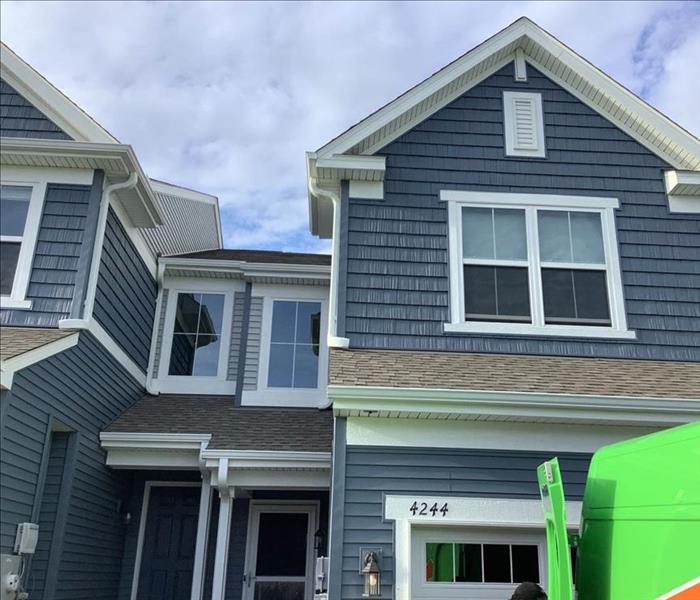Rain Damage in Your Home: Protecting Your Property from Nature's Elements
5/18/2023 (Permalink)
Rain is a natural occurrence that can bring life to our surroundings, but when it comes to our homes, excessive rainfall can lead to significant damage. Understanding the impact of rain damage and taking proactive steps to protect your property is essential. In this blog, we will discuss the various ways rain can affect your home and provide valuable tips to mitigate potential damage.
Roof Leaks
The first line of defense against rain is your roof, but it can be vulnerable to leaks if not properly maintained. Heavy rainstorms can compromise the integrity of your roof, leading to water seepage and structural damage. Regularly inspecting your roof for missing shingles, damaged flashing, or deteriorated sealants is crucial. Promptly addressing any issues through professional repairs can prevent leaks and protect your home's interior from water damage.
Foundation Issues
Excessive rainwater can seep into the soil surrounding your home's foundation, causing it to expand and contract. This constant shifting can weaken the foundation over time, leading to cracks, uneven settling, and structural instability. To prevent rain-related foundation problems, ensure proper drainage around your property. Regularly clean and maintain your gutters and downspouts, directing water away from the foundation. Consider installing a foundation drainage system or French drains to manage excess water effectively.
Basement Flooding
Basements are particularly susceptible to water damage, especially during heavy rainstorms. Poor drainage, cracks in the foundation, or malfunctioning sump pumps can allow rainwater to seep into your basement. To minimize the risk of basement flooding, keep your gutters and downspouts clear of debris, install window well covers, and seal any cracks in the foundation. Consider investing in a reliable sump pump system and regularly inspect and maintain it to ensure it functions properly when needed.
Mold and Mildew Growth
Excessive moisture from rain can create a conducive environment for mold and mildew growth within your home. Proper ventilation and dehumidification are essential to control moisture levels. Ensure that bathrooms, kitchens, and laundry rooms are adequately vented, and repair any leaks promptly. Additionally, consider using mold-resistant materials in areas prone to moisture, such as bathrooms and basements.
Protecting your home from rain damage is vital to maintain its structural integrity and preserve its value. By understanding the potential impacts of rain, regularly inspecting your property, and taking preventive measures, you can minimize the risk of water-related issues. Prioritize maintenance, address any problems promptly, and consider consulting with professionals for comprehensive solutions to safeguard your home against the forces of nature.



 24/7 Emergency Service
24/7 Emergency Service
